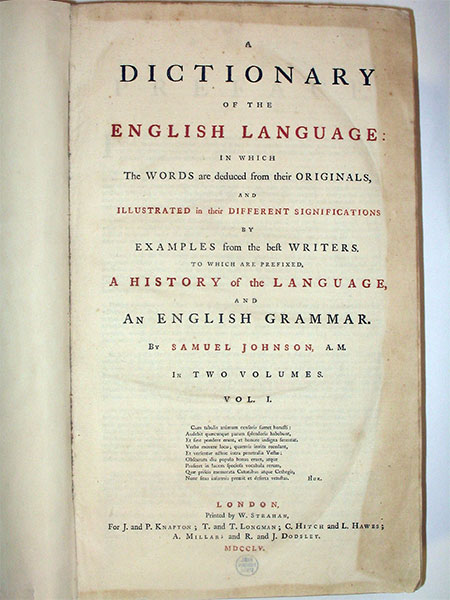Samuel Johnson published his Dictionary of the English Language on this date in 1755.
Frye in “Rencontre: The General Editor’s Introduction”:
The third in this trio [the other two being Dryden and Swift] of the great age of prose Samuel Johnson, who, thanks to Boswell, is even more famous as a talker than as a writer. This is evidence, if we needed it, that the association of good prose style with good conversation is a social fact, not merely an educational ideal. As we should expect from the author of a dictionary, Johnson has an enormous vocubulary, and his use of it is a further indication of the growing polysyllabic quality of English speech, already mentioned. But though a formidable social figure, and satirized in his own day as “Pomposo,” he is not at all a pompous writer: he consistently directs his reader’s attention to the subject, not to himself. (CW 10, 60-1)


What Frye says about Johnson applies, of course, to himself. His prose style has the pleasurable rhythm of heightened conversation. Margaret Atwood has noted this aspect of Frye’s style: that he “did not write for other critics,” but “for the intelligent general reader. . . . Pick up any of his books and what you will hear . . . is a personal voice, speaking to you directly.” And like Johnson, Frye is devoid of pomposity. He “consistently directs his reader’s attention to the subject, not to himself.”